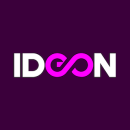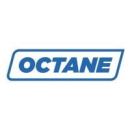Employee feedback matters in all facets of building a desirable, compelling workplace. But it’s especially nonnegotiable when it comes to realizing diversity, equity and inclusion efforts.
After all, DEI efforts strive to create an environment where no voice or perspective is diminished or discounted. That sentiment must be tapped into for the desired end goal to be expressed and correspondingly understood. And that’s just the starting point: feedback has to be a springboard for action — not just a momentum-deadening soundboard.
Keeping the employee pulse in mind takes on heightened urgency when considering what tangible DEI action means to employees. In Built In’s report, “The State of DEI in Tech 2022,” 67 percent of respondents said that an employers’ efforts to improve DEI efforts would make them more inclined to remain at their job.
As leaders at Ideon, Stash and Octane explained, by employing certain strategies and tech tools paired with an attitude of empathy, companies can leverage the employee voice to impactful effect.
For example, Ideon’s Keriann Iovino said that the creation of Ideon’s DEI committee came about as the direct result of collecting feedback through engagement with a consultant. “This work has been incredibly valuable and initiated or accelerated quite a few things,” the people operations manager said.
Looking to get into the mind of team members to steer your DEI strategy? Continue on for best practices from Ideon, Stash and Octane.
Ideon is a health insurance technology company.
How does Ideon solicit employee feedback on DEI practices?
Earlier this year, we partnered with a diversity, equity, inclusion, belonging and accessibility consultant to solicit employee feedback and develop best DEI practices for Ideon as a growing hybrid organization. The engagement included one-on-ones, focus groups, DEI surveys and listening tours resulting in a comprehensive report and set of recommendations. In addition, we employ regular pulse surveys via Lattice that help us understand how employees are feeling in general.
What have been some key takeaways from that feedback?
The biggest overall takeaway was that DEI values need to be explicitly created, communicated and operationalized. We also heard that employees feel very strongly about structure and transparency. When it comes to things like equity in titles, roles and the resulting compensation bands, performance and advancement planning, we can create more structure to help improve our employee experience. That work has now been well-defined and prioritized.
We heard that employees feel very strongly about structure and transparency.”
What actions or initiatives have been taken because of employee feedback on DEI practices? What impact did those actions have?
This work has been incredibly valuable and initiated or accelerated quite a few things. We have accelerated our recruiting process for a VP of people and culture with a focus on DEIBA. We’re creating a DEI committee composed of a cross-section of roles and seniority. We’re also adding educational opportunities centered around DEI including two lunch-and-learn sessions on DEIBA 101 and Workplace Belonging.
We are seeing an improvement in our eNPS and engagement on this topic.
Octane provides a platform through which powersports enthusiasts can finance vehicle purchases.
How does Octane solicit employee feedback on DEI practices?
Supporting a diverse workforce requires daily action, from day-to-day norms and benefits that help employees through life’s ups and downs, to creating an environment where each person can bring their whole self to work every day. Feedback from our people is vital to how we shape our approach to work and support DEI at Octane.
We have formal and informal ways of collecting feedback from our people. Each October, we hold our formal employee engagement survey, where our people can share their anonymous feedback about everything from their relationships with coworkers to their opinions on our health benefits and DEI practices. Additionally, we check in with people with our mid-year pulse survey, we conduct focus groups to get additional feedback around our surveys and our employee resource groups and special interest groups provide valuable insights year-round.
Our managers regularly check in with their direct reports, and the feedback we hear from these meetings is also important to us. Our leaders have two-levels-down check-ins, too, to understand how their team is doing and how we can best support them. We consider all this information as we evolve and build our DEI strategy.
What have been some key takeaways from that feedback?
Our people have told us that work-life balance, career development, hybrid and remote work schedules and comprehensive benefits are vital for caring for them across various life stages and circumstances. We know that flexibility and individualized support is essential to supporting a diverse workforce.
We know that flexibility and individualized support is essential to supporting a diverse workforce.”
Our internal DEI initiatives are key for increasing visibility, understanding and community. We launched additional DEI training for our managers to support them in fostering an inclusive environment for their teams, and our ERGs and special interest groups give people a space to share their experiences and connect. These groups help lead and shape our DEI activities, like celebrating different heritage months and increasing awareness through events. Additionally, we regularly host Octane Stories, a speaker series that allows Octanes to share their experiences, as well as roundtable discussions about current DEI topics.
In response to employee feedback and the impact Covid-19 had on our people, we introduced three emergency days off with no questions asked and introduced more remote and hybrid roles so we can reach and support a wider range of candidates. These popular changes are here to stay.
What actions or initiatives have been taken because of employee feedback on DEI practices? What impact did those actions have?
We understand the importance of diversity in the workplace: it leads to better decision making in business, improves the employee experience and increases employee engagement. Because of this, one of our core values is “Embrace diversity of people and ideas.” This value is at the forefront of our interview process, performance reviews and day-to-day norms.
Because we take a data-driven approach to hiring and promoting, we know where we’re falling short and where we need to focus. We use quantitative data alongside employee feedback to help shape how we approach DEI at Octane. Our external partnership with Hummingbird Humanity has helped us build on employee feedback and identify even more opportunities to care for employees, reduce unconscious bias and create DEI and inclusive manager training.
As a result of our DEI practices, we were named to Mogul’s Top 100 Companies for Diverse Representation in 2022. We’ve been able to have important conversations about topics that matter to our people, donate to causes that advocate for diversity and work with our team to create an inclusive, supportive workplace where all our people can bring their whole selves to work.
Stash is a personal finance and investing app.
How does Stash solicit employee feedback on DEI practices?
We have a biannual confidential survey that measures employee engagement. Baked in there is also an inclusion index, which measures our ability to foster an inclusive work environment. It comprises seven questions that measure important concepts like psychological safety, belonging and trust, to name a few. We are able to break it down by company results as well as specific demographics. As a company we have an OKR centered around the inclusion index and action plan to ensure we continue to reach our specific goal.
What have been some key takeaways from that feedback?
It’s always easy to track how you are doing in diversity through demographic data, but very rarely do companies measure their inclusion efforts. The inclusion index allows us to see just how inclusive we are as an organization and not just stop at diversity when it comes to measuring our DEI efforts. We are able to hear directly from our employees on what we are doing right and what we need to improve upon. The ability to measure as well as the subsequent feedback have been helpful when developing programs or initiatives that drive impact after receiving the results.
We are able to hear directly from our employees on what we are doing right and what we need to improve upon.”
What actions or initiatives have been taken because of employee feedback on DEI practices? What impact did those actions have?
There was one inclusion index where our psychological safety score had fallen as a company. We took a closer look at what the cause was: We hadn’t run psychological safety/unconscious bias training in almost a year, and since then, we had brought on a lot of new employees.
To ensure that our current employees as well as any future employees had education around these important topics, we implemented an interactive unconscious bias education series. This series was sent to all current and will be sent to future employees with the goal of making sure everyone understands unconscious bias, psychological safety and its importance. Since that implementation, we have seen our psychological safety score rise.











